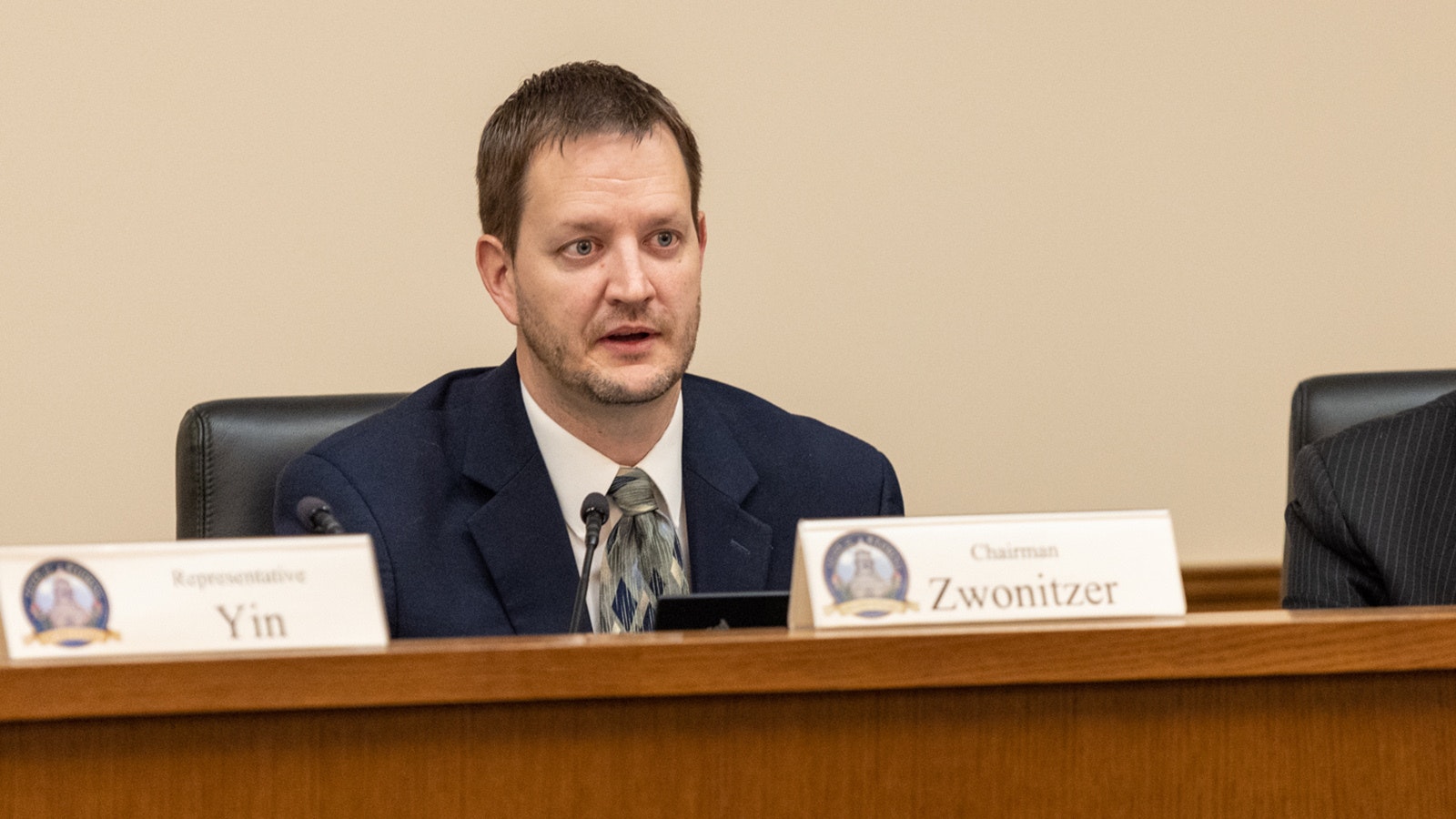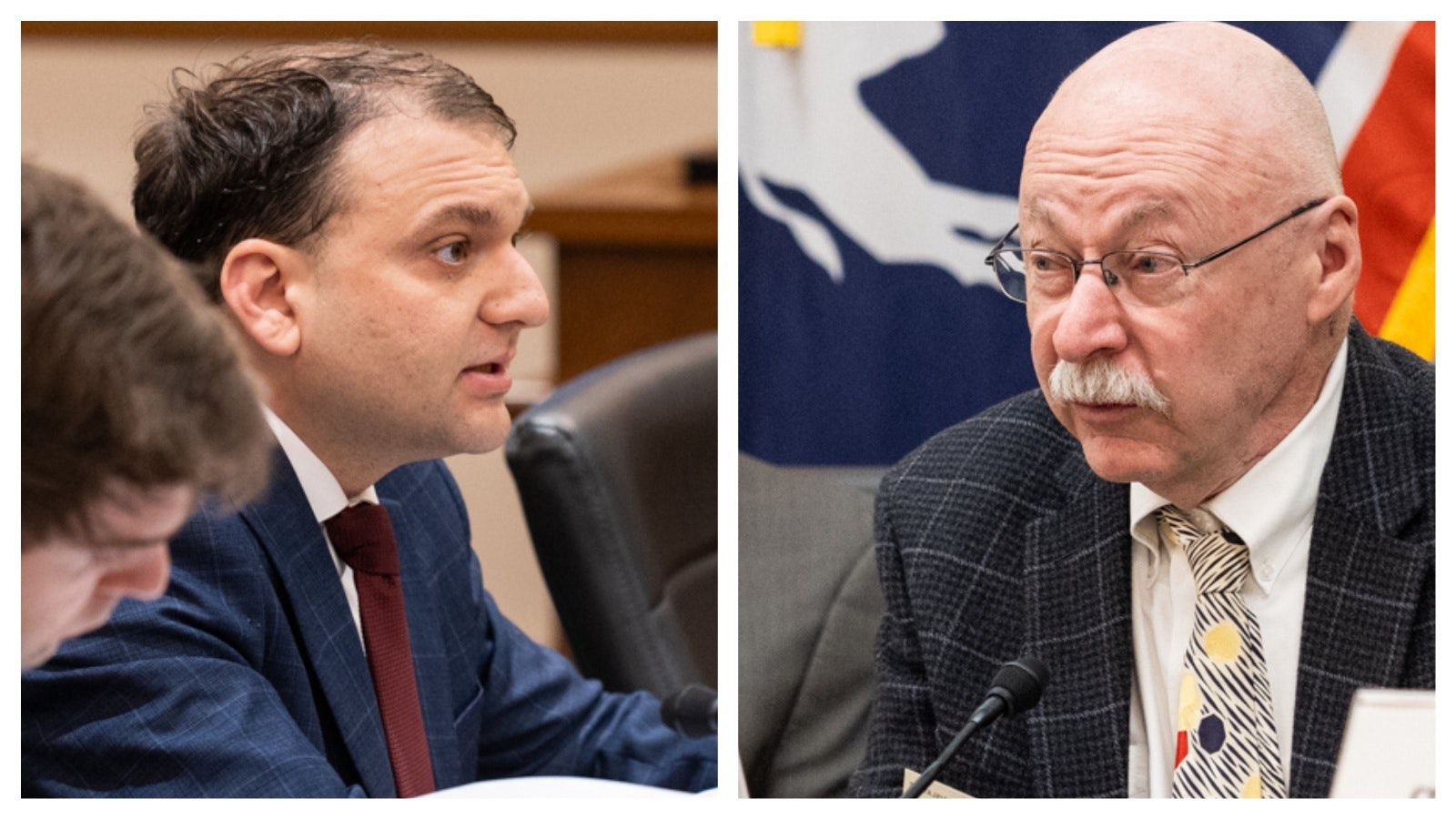By Leo Wolfson, State Politics Reporter
Leo@Cowboystatedaily.com
The House Minerals, Business and Economic Development Committee passed legislation on Wednesday protecting journalists in Wyoming from revealing their sources.
Every state except Wyoming and Hawaii has a shield law on the books.
Without this protection, a court can subpoena a reporter and compel them to disclose their sources and materials.
House Bill 91, the “News source shield law,” provides protection to journalists who refuse to disclose news information, such as the identity of sources and other information.
Rep. Dan Zwonitzer, R-Cheyenne, sponsor of the bill, referred to it “as an old friend of the Legislature.” The Legislature reviewed similar shield law bills in the 2020 budget and 2021 general sessions. Both failed.
Not Used Lightly
Zwonitzer said this privilege would not be used lightly and only in extreme scenarios, likening it to a once every 5–10-year event.
“This privilege or this immunity is not used lightly and only in the gravest of circumstances,” Zwonitzer said. “I do think it’s important, maybe even paramount in a state like Wyoming where everyone knows everyone.”
The committee passed the bill with an 8-1 vote.
The law applies to those working for a newspaper, magazine, news media, press association, wire service, website or other professional medium or agency that is based around the production of news broadcast on radio or TV and those who consider themselves independent journalists. The shield law would also apply to former journalists who leave the profession.
The Wyoming Constitution protects a free press in that, “Every person may freely speak, write and publish on all subjects, being responsible for the abuse of that right.”
Zwonitzer used the example of the University of Wyoming’s student news publication the Branding Iron. He mentioned how not only a reporter would be protected under the new law, but so would their editor, who may also be a teacher.
He said the burden of proof to determine if an individual is a journalist is up to the journalist in question.
He said the privilege to shield could be waived in a defamation case or in an event where failure to disclose the news information will create an imminent risk of death or serious bodily harm to an individual.
“If you feel like it’s just a simple defamation against another person or their character, there is a way to demonstrate that you could have that privilege waived,” Zwonitzer said. “It can’t be used both ways.”
What’s ‘News’ And ‘Journalist’?
Zwonitzer said many states have an outdated definition of what exactly a journalist is. He said this has been a roadblock for the bill in the past, so this year he and his co-sponsors on the bill tried to turn their focus on defining what news is.
“Whoever’s publishing that in a press association, a wire service, even a website, there is someone responsible, an owner,” Zwonitzer said. “Most of these companies, they have professional ethics that they subscribe to, but because it’s not a governmental, it’s a trade association … it’s really tough to put that in statute.”
Rep. Cyrus Western, R-Sheridan, expressed concern that anyone who claims they are a journalist will receive protection. He cast the only vote of opposition on the bill.
“That could just simply be a blogger and not follow journalistic practices,” he said. “I think that’s something … that’s been an issue nationally with our media landscape.”
Western said protections are deserved in certain situations, but questioned whether delineation between gossip and a serious news situation is made clear in the bill.
Zwonitzer said the bill achieves this goal, but admitted it is not “air-tight.” He said the burden of proof rests on the existence of the privilege of the journalist to show they are a legitimate news source.
David Iverson, who has a Wyoming-advocacy podcast, had an opposite perspective from Western. He said language needs to be included to define independent journalists, as he defines himself.
“I think that is broad, but we are dealing with a topic that is broad by its very nature,” he said.
Rep. Scott Heiner, R-Green River, passed an amendment adding the independent journalist terminology.
Iverson also raised issues with the defamation section of the bill, saying it needs to be removed to protect journalists further. He separated cases of libel and slander from defamation while making his point, saying a defamation lawsuit can be filed for almost any reason, while libel and slander require a higher standard.
The committee did not change the defamation section of the bill.
Pressures
Brian Martin, managing editor of the Wyoming Tribune Eagle, spoke in support of the bill. He said members of the public who go on the record to expose corruption show bravery, but some people don’t always have this option due to certain risks and threats. They may wish to remain anonymous. Martin pledges confidentially to these types of sources.
“I no longer I feel like that can be the case,” he said.
Pressure has been put on Wyoming journalists to reveal sources over the years but none have ever been jailed for refusing to do so.
According to Reporters Committee, a press advocacy group, in 2008, a federal judge held a USA Today reporter in contempt of court for refusing to reveal confidential sources for her reporting on the government’s investigation into the 2001 anthrax attacks. She was ordered to pay fines of $500 a day for seven days, $1,000 a day for another seven days, and $5,000 a day for seven days if she refused to name her sources. This decision was later vacated.
In 2006, a freelance video blogger from San Francisco was jailed for a month when he refused to turn over a videotape that federal officials said contained footage of protesters damaging a police car.
One of the most famous instances of confidential sources came from the Watergate scandal, where the source known as “Deep Throat” provided critical information to Washington Post reporters Bob Woodward and Carl Bernstein.
Jim Beck, general manager of the Gray Television stations in Casper and Cheyenne, said applications for the law can be used every day. He said anonymous sources are not used lightly but provide a valuable counterbalance to more powerful voices like government officials.
“That’s where it begins, not where it ends,” he said.





